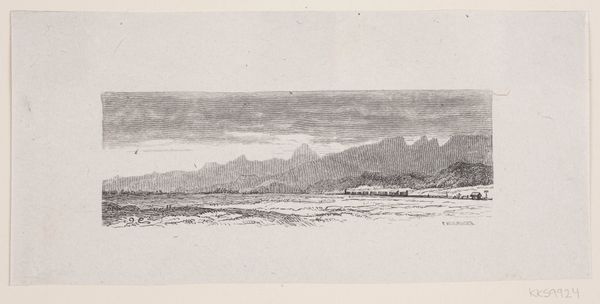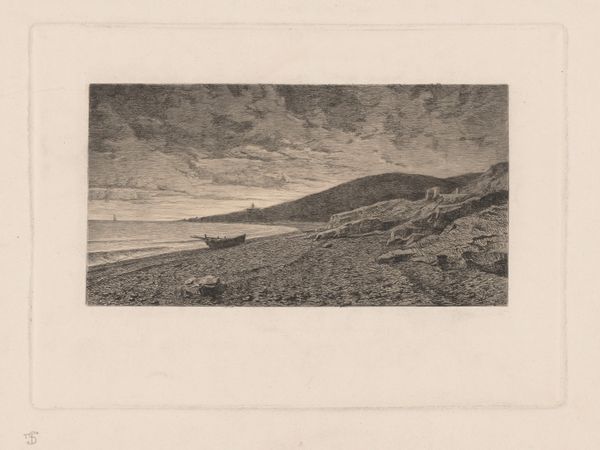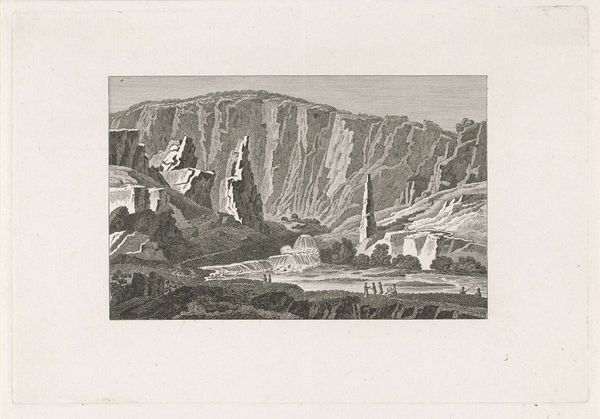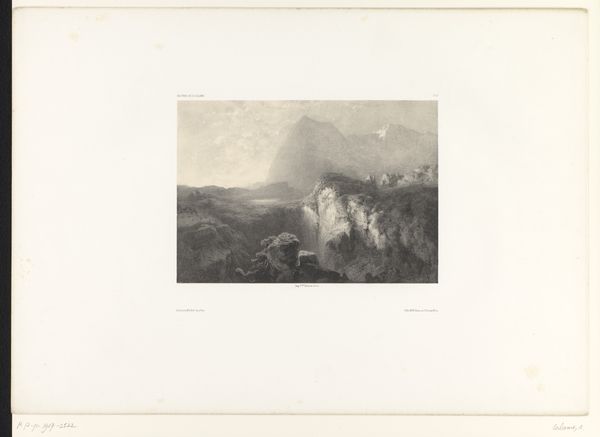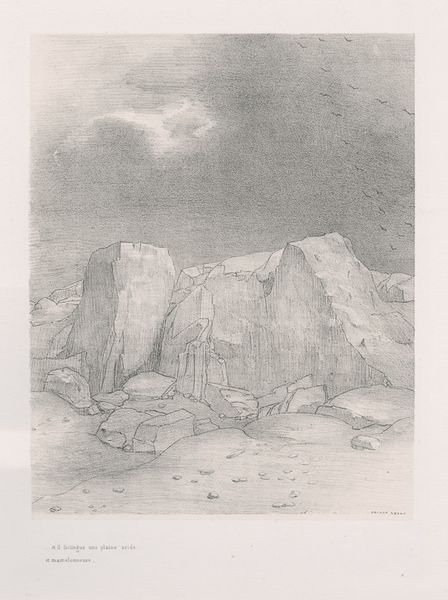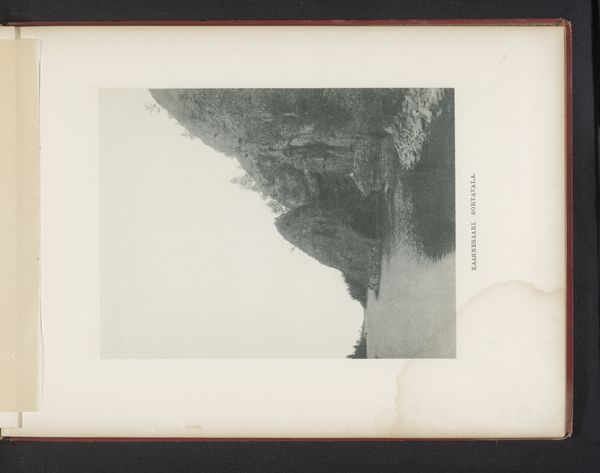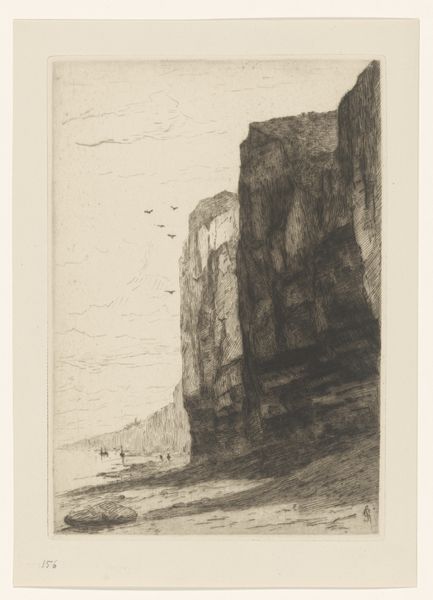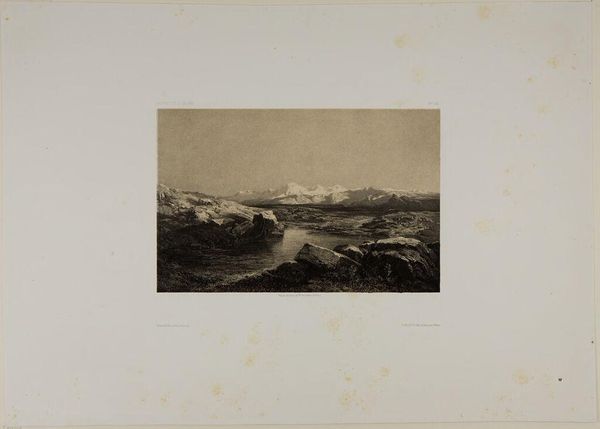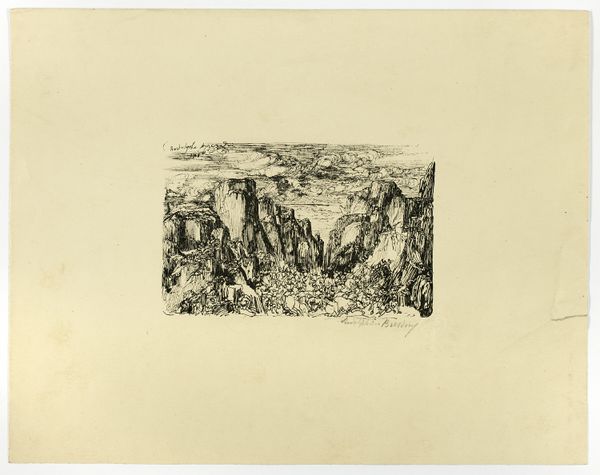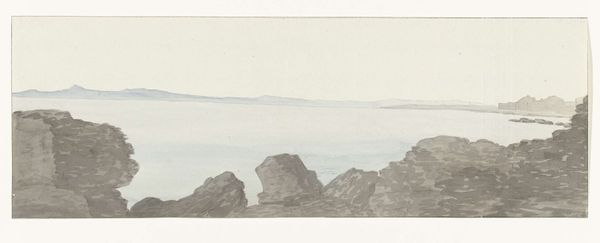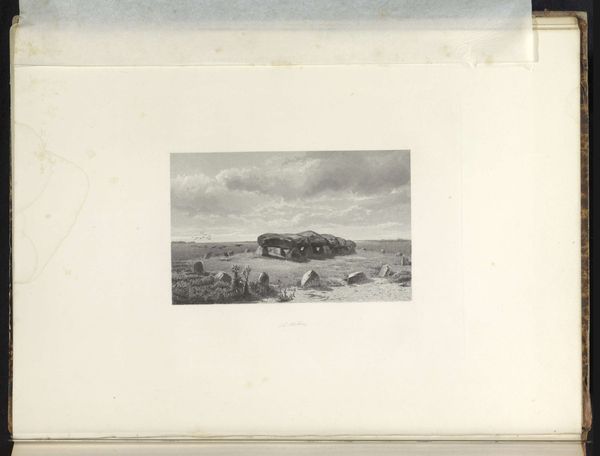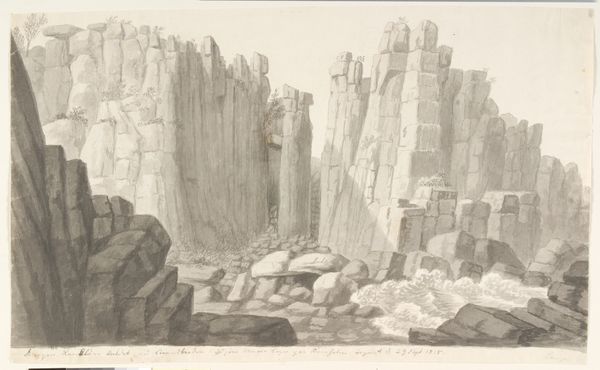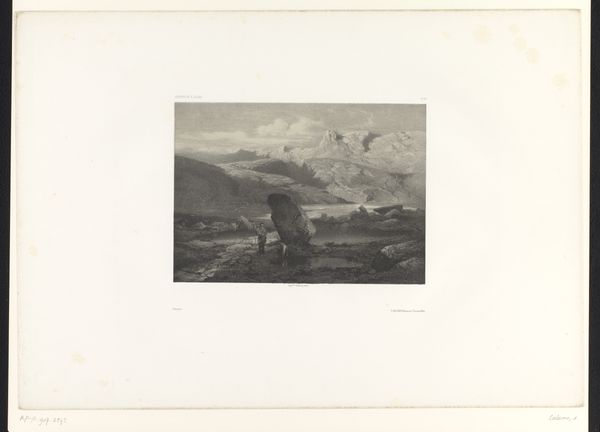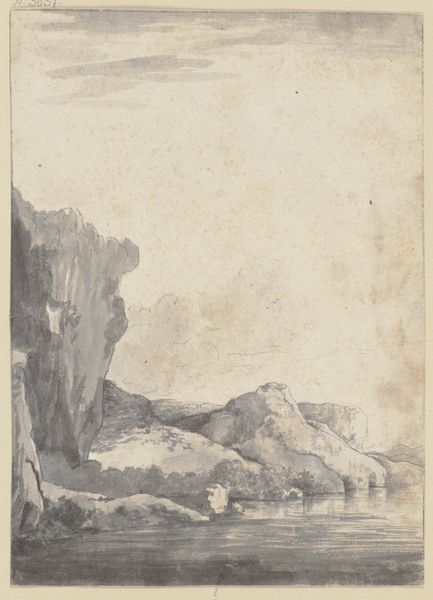
Dimensions: height 160 mm, width 736 mm
Copyright: Rijks Museum: Open Domain
Editor: This is Louis Ducros’s “View of the Ruins of Fort Sarazin near Tarente,” a watercolor from 1778. It's incredibly subdued in color, mostly grays, which gives it a sort of melancholic, pensive atmosphere. What draws your attention in this piece? Curator: The melancholic tone resonates with a larger cultural phenomenon. This landscape participates in the eighteenth-century fascination with ruins, a romantic idealization of a lost past. It isn’t just an aesthetic appreciation of decay; it’s entangled with colonial power structures. Consider, who gets to gaze romantically upon ruins, and whose ruins are they? Editor: That's a powerful point. I was just thinking about the pretty colors! How does this tie into colonialism specifically? Curator: The gaze upon ruins, especially in landscapes like this, often carries an implicit claim to that land's history. European artists and audiences, captivated by the picturesque qualities of crumbling empires, often overlook the contemporary inhabitants and their lived experiences within these spaces. It reinforces a narrative where the present is framed by a "glorious" but irretrievable past. Editor: So, it's about the selective vision— focusing on the romantic decay while ignoring the ongoing consequences of historical power dynamics? Curator: Precisely. By centering the ruins, we risk erasing the continuous narratives of people still living and working there. Art like this can normalize that erasure, even unintentionally. Does understanding the piece in this light shift your initial perspective? Editor: Definitely. I now see how it can be read as a commentary, though subtle, on cultural appropriation and the politics of remembering and forgetting. Thanks for shedding light on that. Curator: It's vital to remember that art never exists in a vacuum. Historical context helps us unearth deeper truths and reckon with difficult legacies.
Comments
No comments
Be the first to comment and join the conversation on the ultimate creative platform.
